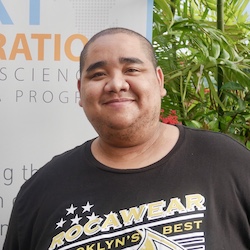Bio
Chad Brevis is a PhD student in the Centre for Film & Media Studies at the University of Cape Town specializing in socio-political disapprobation to freedom of speech and the rise of online ‘hacktivism’ culture in a digital democracy. During his undergraduate and honors years, he worked as a tutor for the Department of Religion and Theology specializing in ethical theory. Brevis currently works as a tutor in the Department of English at the University of the Western Cape and also as an e-tutor for English at UNISA. His work experience includes journalism, editing, literary critique, and activism for the NGO The Right2Know Campaign, defending freedom of speech.
Brevis completed a Master’s degree in English iterature as a full dissertation with a focus on 20th century literature, taboo topics in fiction, totalitarian censorship law, sociolinguistics, and ethics in literature. He also completed a MA qualification in realizing rights and social justice as well as violent conflict, media, and the politics of representation from the Institute of Social Studies in The Netherlands. Accolades are as follows:
Activist/academic researcher /editor for the Right 2 Know Campaign;
Member of the Golden Key International Honors Society;
Mellon Fellowship recipient and fellow;
DAAD-NRF bursary holder for 2012-2014;
Abe Bailey Europe Travel Bursary holder for emerging leaders and academics in Africa;
SKILLS MA scholarship holder for master’s and Doctoral studies at The Institute of Social Studies in The Hague;
Social Science Research Council: Next Generation Social Sciences in Africa Fellow (2018; 2019);
Author of the academic book: Taboo Topics in Fiction: The Case of Vladimir Nabokov’s Lolita.

